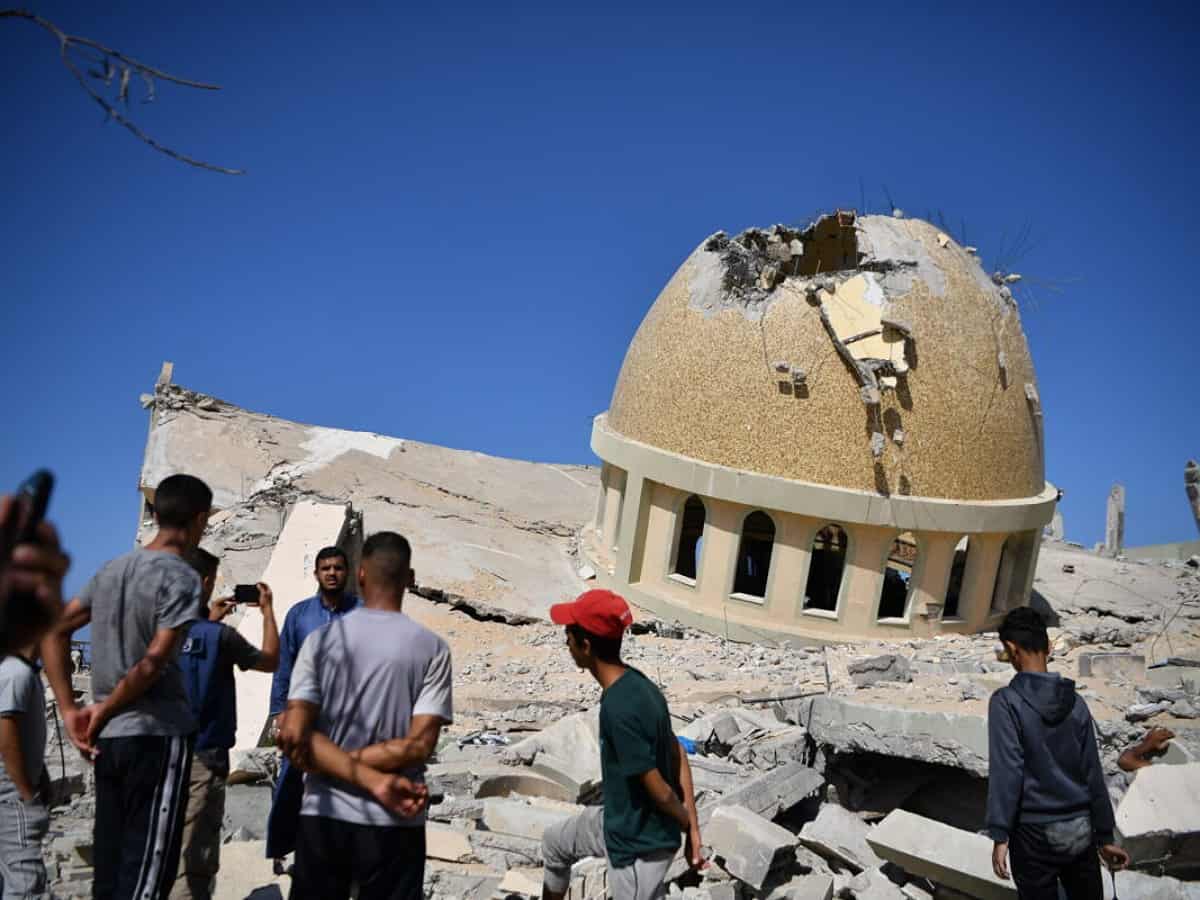
Israeli airstrikes on the Gaza Strip have destroyed at least 31 mosques completely since Saturday, October 7, the Gaza Ministry of Internal Affairs said.
As the conflict between Israeli forces and Palestinian militant group Hamas continued for the 17th consecutive day on Monday, October 23, the death toll on both sides has risen to at least 6,492.
In Gaza, the health ministry said that at least 5,087 Palestinians have been killed, including 2,055 children and 15,273 citizens wounded due to Israeli attacks.
On the Israeli side, at least 1,405 people have been killed, including 306 soldiers and 5,431 injured.
The war began on Saturday, October 7, after Hamas infiltrated southern Israel, sending fighters, firing 5,000 rockets, and taking captives, including women, children, and the elderly, which prompted Prime Minister Benjamin Netanyahu to warn of “a long and difficult war.“
Israel’s retaliatory strikes have triggered a humanitarian crisis in Gaza, causing severe water and food shortages, and significant concern for the region’s impoverished residents.
Gaza needs fuel as urgent as water & food: UN
A top UN official said on Monday that fuel requirement for the besieged Gaza Strip is as “urgent as water and food”, adding that the two aid convoys that entered the Hamas-controlled enclave over the weekend have barely alleviated the dire conditions.
Speaking to CNN, UN Relief Works Agency (UNRWA) Communications Director Tamara Alrifai said: “Without fuel, it is not going to be possible to go around Gaza… Or to power the water desalination plant to get clean drinking water or to power hospitals and the lifesaving machines.”
Alrifai said humanitarian aid that entered Gaza was “a fraction” of what is needed for over 400,000 displaced people currently taking shelters in schools run by UNRWA, adding the situation is “very, very dire”.
She told CNN that people in Gaza were being forced to ration food, “even counting the minimum required calories per person per day per survival”.
“We are really counting on a continuous and unimpeded access of the trucks from Rafah into Gaza.”
Israel had previously said that fuel won’t be allowed into Gaza.
As the weekend witnessed intensified Israeli airstrikes on Gaza, doctors described “catastrophic” conditions at one central hospital as electricity and fuel supplies run out and crippled medical facilities rapidly become overwhelmed with casualties, reports CNN.
Iyad Issa Abu Zaher, director general of Al Aqsa Martyrs hospital, described a “bloody day” for his staff to CNN on Sunday, saying the hospital had received up to 166 bodies and more than 300 injured people.
“It’s impossible for any hospital in the world to admit this number of injured,” he said.
Aid has been piling up on the Egyptian side of the Rafah crossing that connects to Gaza.
The vital passage was briefly opened over the weekend, delivering the first convoy of 20 aid trucks into besieged Gaza on October 21, and another 14 trucks passed through it the following day.



